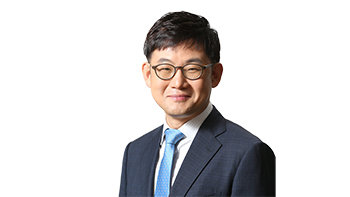NPS needs more management manpower to delay fund exhaustion
NPS needs more management manpower to delay fund exhaustion
Posted September. 19, 2024 08:32,
Updated September. 19, 2024 08:32

The National Pension Service (NPS) opened its fourth overseas office earlier this month at One Bush Podium Building, 30 percent of its shares are owned by South Korea’s public pension fund in downtown San Francisco, following New York, London, and Singapore. Only four fund managing staff, including the office’s head manager, have started discovering and investing in promising Silicon Valley businesses. “We will help enhance fund revenue to contribute to the national pension reform,” NPS Chairman Kim Tae-hyun said at an opening ceremony.
The NPS, which was founded in 1988, recorded a total value of 1,147 trillion won under management as of late June. However, it is inevitably supposed to run out of funds down the line because the system is designed with more pension benefits than pension payments to pay. An increase of one percent point in the rate of return can push back the time that the NPS runs out of money by five years. If it remains unchanged, the system will reach its peak of 1,882 trillion won by 2041 and run downhill afterward.
The problem is that the NPS is severely understaffed, with its funds piling up. As of the end of the previous year, 365 quotas were planned for the National Pension Service Investment Management, which has been left unmet since 2018. It is not because it has intended to leave them vacant for some reason; but partly because investment experts, one of the highest-paid jobs, find it somewhat less appealing to reside and work in the non-capital area, Jeonju of North Jeolla Province. This also explains why 20 to 30 managing staff quit every year. In addition, they do not get paid as much as they would expect in the industry. To be sure, the solution may be to relocate the office to Seoul and raise their pay beyond the level they would deserve in the private sector. However, it does not seem like a plausible fix because it is likely to cause a local backlash and criticism about the lack of equity.
Here are some measures to take. First of all, the NPS may consider hiring more investment managers in their overseas offices because their locations are relatively preferred. If it increases the number of overseas fund experts up to 201, labor costs will rise by 113.7 billion won based on data from 2020, according to the government's internal analysis. On the other hand, it can earn an additional revenue of up to 1.7 trillion won thanks to a higher rate of return. It even seems shorthanded compared to other countries, given that the total number of overseas office workers has only been left at 58 for many years. Compared to around 10 employees on the job at an overseas NPS office, 50 up to 90 experts work at an overseas pension fund office of the Netherlands, Canada, and Norway.
Next, the NPS needs to downsize the fund management scale per expert. Earning greater stock returns requires a deeper study of highly potential businesses. This necessarily demands a large number of managers with expertise. Unlike an NPS fund manager who runs over three trillion won, other countries’ national pension systems, such as the Dutch pension investment company APG, only allocate hundreds of billions of won to a manager. Not surprisingly, the latter shows greater investment performance than the former. For example, the Government Pension Fund of Norway recorded an accumulated return rate of 16.1 percent per year from 2013 to 2023, triple that of the NPS.
The NPS should put itself out for change. For instance, CPP Investments of Canada has since 2006 turned its attention to a variety of alternative assets, leading to a considerable improvement in the rate of return. It even has a long-term return rate of over 10 percent per year. By contrast, critics argue that the NPS has no long-term asset management goals but is limited to investing in a specific group of assets, finding it hard to adjust to market shifts. Considering that the national pension system does not happen overnight, it is high time that the NPS should increase its manpower and make a fundamental change in how it invests so that it can take another leap forward.
Yu-Jong Lee pen@donga.com
Headline News
- Joint investigation headquarters asks Yoon to appear at the investigation office
- KDIC colonel: Cable ties and hoods to control NEC staff were prepared
- Results of real estate development diverged by accessibility to Gangnam
- New budget proposal reflecting Trump’s demand rejected
- Son Heung-min scores winning corner kick







